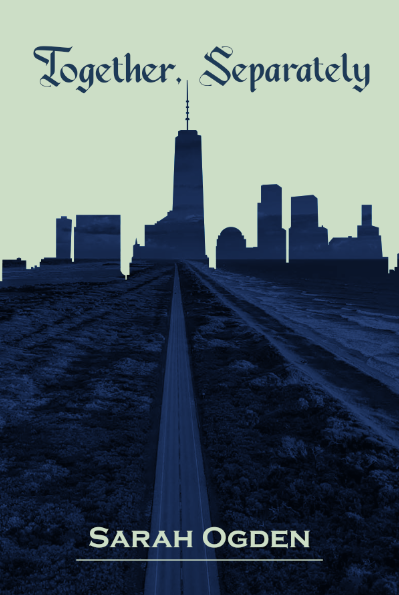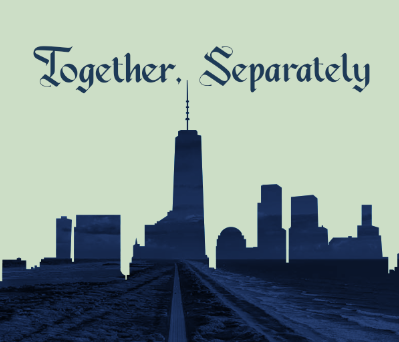
I never thought I would see my manuscript on Amazon. Over the course of nearly three years, what started as sloppy cursive scribbled throughout three journals had turned into a document of over 200 pages on Kindle Direct Publishing about to be sent out to the world. For as long as I can remember, my life dream has been to reach others through my words. As I uploaded my novel to Amazon, I realized that this dream was about to come true.
I remember as a kid when writers would visit my elementary school. Among their personal stories of success, strewn with tidbits of advice, one tip always stood out to me: the importance of not giving up on your story despite the gruesome revision process (which is always gruesome, no matter how confident you are in a first draft). It wasn’t until years later that I realized how crucial this piece of advice is.
I strongly believe that an inevitable part of the writing process is being humbled. My humbling moment occurred when, after typing up my handwritten manuscript and letting it sit for a year, I returned to the file and cringed when I realized just how much revision it needed. This was also when I realized that the year away from my story allowed me to then see it through new eyes. Though my manuscript would need extensive revision, I was able to accept that and start focusing on strategies.
This was easier said than done. While reading through my draft—a story I’d written in high school that focused on two high school characters—with college eyes, I felt like I could no longer relate to my own writing. I began to think that this project was meant to sit forever within my files well exceeding the Microsoft storage limit. So, before I had even completed one read-through, I closed the file and forgot about it again.
Another year passed, and it was suddenly summer 2024, the summer after my sophomore year of college. Once more, I opened the document, this time with a goal: I was going to finally publish my book.
The first step was reading my draft. I sat with it over the course of multiple days, forcing myself to push through, past some passages I silently applauded myself for, but far exceeded by those that made me question what in the world I was thinking when I wrote them. I created a separate document that I titled “Editing Draft,” in which I highlighted all the passages I wanted to change and wrote down suggestions for revision. By the time I had finished, an overwhelming chunk of my document was highlighted. Still, I had worked too hard; I wasn’t about to let this manuscript sit for another year.
I then read the document again, revising the pieces I had highlighted. The process was time-consuming; while I followed many of the suggestions I had previously given myself, there were some passages I either did not want to change or that I had a new revision idea for. This was when I began to realize how exhausting the editing process is. Though I had developed solid ideas for revision, my ideas altered each time I read the draft, and I had to decide whether to accept or reject my own ideas.
I at last thought I was finished. I contacted my uncle, who happens to be a published author, with questions about the publication process. He explained to me the importance of acquiring beta readers to provide feedback on the draft. Though I was able to view my story with new eyes after putting it away multiple times, I still needed the eyes of someone else, someone who had never read my story. My uncle then offered to serve as a beta reader.
At this point, I had learned patience from the revisions I’d completed thus far, not to mention the months it had taken me just to produce the first draft. This was different, though. I waited for feedback on what I’d titled my “Beta Reader” draft, a draft I thought was well polished and one that I’d previously been eager to publish. After all the time I had spent revising, it felt strange to take another step back. I almost felt guilty for not working on my novel. Still, I forced myself to engage in other projects to take my mind off this one. I realized how hard it was to take time off from a project I had spent hours on long summer days thinking about, but sometimes it’s necessary to shut your creative mind down for a while, or at least focus it elsewhere.
On the last day of July, I heard back from my uncle. He had sent me a draft that, when I opened it, was saturated with comments. I had been warned; when the writers had visited my school as a kid, they had recounted their humbling experiences of opening their edited drafts to find them covered in red marks. By then, though, I knew two things: I appreciated any feedback, and I could pick and choose which comments were most helpful for crafting the vision I had for my novel. Though red marks are scary, they do not define your story; they are merely there to guide it.
After talking with my uncle about his feedback, I sat down to complete the most taxing revision yet. The conversation with my uncle made me realize that my story felt incomplete; the overarching theme was grounded, but I wanted to give it more shape. Just talking it out suddenly made my vision clear, and I knew how I wanted to revise. I was suddenly flooded with ideas of additional scenes to add, more descriptions to flesh out characters, and an overall clearer sense of how to fit my words into my vision. For the first time during the editing process, the loose pieces of my story little by little found their place in the puzzle.
I could not say how many times I read my novel. I created a separate document listing all the changes and additions I planned to make, then read my draft, incorporating each of these items. As I added each one, I highlighted it on my separate document. I then read it again, incorporating whichever pieces of feedback from my uncle I had decided to use. I then remembered other passages I wanted to change, thought of new ideas for scenes or tiny details I wanted to add, and I revised those passages, then read them again to make sure they flowed.
I wrote my uncle a message one day: “When you’re revising, is there a certain point when you just know your book is done, or do you get to the point where you can’t look at it anymore?” The response I received was to read the book so many times that I’m familiar with nearly every sentence. As a perfectionist, this was not the response I wanted to hear, yet it pushed me to keep going.
I knew I was almost there when, one day, I highlighted the final item on the 23-page document of suggestions I had written for myself. This was the same day that, after realizing I had never mentioned what kind of car one of the main characters drives, I spent a half-hour assigning him one. I finally told myself to stop.
I read through the manuscript one more time. This time, I tried to view it not through the eyes of an editor but through the eyes of a reader, as I hoped others would soon view it. I at first had trouble reading my own work from this perspective, but I grew accustomed to it. I imagined reading the novel in print rather than on my laptop, holding the book in my hands and flipping each page.
I’ve never been so relieved to read “The End.” In that moment, I knew that three years of work had finally come together, tied intricately to form the story I had spent so long trying to tell. After all this time, I had finally found the right words.
The dedication at the start of my novel, “Together, Separately,” reads, “To everyone who has struggled to put thoughts into words.” I believe that the greatest struggle of a writer is taking all the random thoughts, all the badgering emotions of your mind, and finding a way to convey them on paper. Throughout my life, I have considered writing my outlet for expression. As someone who has so much to say, yet who often struggles to find a way to say it, I’ve found writing both a comfort and a passion. Writing has helped me grow to know myself better, and it’s helped me find my voice. Words only exist on the page, but their impacts can extend well beyond what’s embedded in ink. Through publishing my first novel, I hope to reach others who can relate to my words and help them feel less alone, as writing has helped me feel.
The opinions on this page do not necessarily reflect those of The Sandspur or Rollins College. Have any additional tips or opinions? Send us your response. We want to hear your voice.







Comments are closed.